The State Bank of India (SBI) is one of India’s largest and most prestigious banks, and the position of Probationary Officer (PO) is highly coveted. Becoming an SBI PO not only offers job stability but also comes with attractive pay and benefits. In this article, we’ll explore the details of the SBI Bank PO Salary, its components, and the factors that affect the salary structure.
1. Salary Definition
Salary refers to the payment made to an employee for services rendered in a given period, typically on a monthly or bi-weekly basis. The salary structure includes basic pay and additional allowances or bonuses, making it an essential factor in job satisfaction and employee motivation.
2. Types of Salaries
There are several types of salaries based on various factors, including industry standards, employee roles, and compensation packages.
- Fixed Salary: This is the base pay and doesn’t change month-to-month.
- Variable Salary: A portion of the salary depends on performance, such as bonuses or profit-sharing.
- Hourly Wage: Common in part-time and hourly jobs, where employees are paid based on the number of hours worked.
- Commission-Based Salary: Employees earn a percentage of the revenue or sales they generate.
3. Factors Influencing Salary
Several factors affect salary determination, including:
- Industry: Different industries have different pay structures based on market standards and profitability.
- Experience: A candidate with more experience typically receives a higher salary compared to someone starting their career.
- Geography: Salaries may vary based on location, with urban areas typically offering higher pay due to the cost of living.
- Education and Skills: Higher qualifications and specialized skills often lead to better salary offers.
4. Salary Negotiation Tips
| Component | Details |
|---|---|
| Basic Pay | ₹41,960 – ₹44,210 (approx.) |
| Dearness Allowance (DA) | 0% of Basic Pay (adjusted quarterly) |
| Special Allowance | ₹5,500 – ₹9,000 (approx.) |
| House Rent Allowance (HRA) | 10-15% of Basic Pay (depending on the city of posting) |
| Medical Allowance | ₹1,000 (approx.) |
| Travel Allowance (TA) | Varies based on the location and travel expenses |
| Gross Salary | ₹53,000 – ₹56,000 (approx.) (including allowances) |
| In-Hand Salary | ₹45,000 – ₹50,000 (approx.) (after deductions) |
| Probation Period | 2 years |
| Other Benefits | Pension Scheme, Gratuity, Insurance, and Loan facilities |
Note: The salary structure may vary depending on the location, allowances, and revisions by the bank from time to time. The figures mentioned above are approximations.

SBI Bank PO Salary
Negotiating a higher salary can be challenging but is essential for maximizing your earning potential. Here are some tips:
- Know Your Worth: Research market salary rates for similar roles in your industry.
- Highlight Skills: Emphasize your unique skills or experiences that justify a higher salary.
- Be Flexible: If the salary is non-negotiable, consider negotiating for additional benefits.
5. Salary Structures Around the World
Salaries differ based on the country’s economic status and labor market. Developed countries often offer higher salaries, especially for skilled professionals, while developing countries may offer comparatively lower pay.
6. Salary vs. Cost of Living
A high salary in a region may not mean much if the cost of living is equally high. For example, living in metropolitan cities like Mumbai or Delhi may require higher pay to maintain a decent lifestyle due to the increased cost of housing, transportation, and other basic needs.
7. Salary and Job Satisfaction
Job satisfaction is closely related to salary but is influenced by several other factors, including work-life balance, job security, and career growth. A competitive salary is often necessary to retain employees and maintain motivation.
8. How to Increase Your Salary
Increasing your salary can be achieved through:
- Continuous Learning: Upskilling or obtaining higher degrees can increase your earning potential.
- Performance: Excelling in your job and exceeding expectations can justify a salary raise.
- Networking: Connections can help you learn about better-paying opportunities or negotiate higher salaries.
9. Salary and Taxation
In India, salary is taxed based on income brackets. Higher salaries fall under the higher tax slabs. However, various exemptions and deductions can reduce taxable income.
10. Salary Benchmarks
Salary benchmarks are established through research and surveys. These benchmarks help employers determine the going rate for a specific role, ensuring their compensation packages are competitive.
11. Salary in Different Sectors (Public vs Private)
In general, public sector jobs like those in banks tend to offer more job security, but private sector roles often come with higher salaries and better growth prospects. SBI PO salary offers a balanced mix of stability and decent pay, making it one of the most attractive jobs in India.
12. Salary Transparency
In many organizations, salary transparency can lead to better trust between employees and employers. When employees know how salaries are determined, it promotes fairness and reduces dissatisfaction.
13. Salary Discrepancies
Salary discrepancies occur when employees in similar roles receive different pay. This may result from factors such as negotiation skills, performance, or favoritism. Addressing these discrepancies is important to maintain a motivated workforce.
14. Salary and Job Market Trends
Job market trends heavily influence salary trends. With increasing automation and AI, some sectors might experience salary stagnation, while others (such as technology) will see significant salary growth.
15. Salary in Different Career Stages
- Entry-Level: At the beginning of one’s career, salaries are generally lower but increase with experience.
- Mid-Career: With several years of experience, the salary tends to stabilize and increase with added responsibilities.
- Late-Career: At this stage, salaries are often at their peak, and employees can command high salaries due to extensive experience.
16. Freelance Salary vs Full-time Salary
Freelancers typically set their own rates and may earn more per hour than full-time employees. However, full-time employees enjoy benefits like job security, health insurance, and paid leave.
17. Freelance and Remote Work Salary Trends
The rise of remote work has created new salary trends. Many remote jobs offer flexible hours, allowing employees to work for international clients or multiple companies, often resulting in higher salaries.
18. Impact of Education on Salary
Education plays a significant role in salary determination. Higher education, such as a master’s degree or professional certifications, can lead to higher-paying job offers.
19. Salary vs. Job Security
While a higher salary may seem attractive, it’s essential to consider job security. A job that offers both a good salary and stability is usually the best option in the long run.
20. Salary for Different Job Titles
Salaries differ based on job roles. For example, a SBI Bank PO salary is structured based on job responsibilities, seniority, and experience level. In contrast, senior management roles tend to offer significantly higher pay.
21. Salary Reviews and Increments
Salaries are usually reviewed annually, and increments are provided based on performance. Regular salary reviews help employees feel valued and ensure they are compensated fairly.
22. Global Salary Comparison
Salaries in India are generally lower compared to Western countries. However, considering the cost of living and economic factors, salaries in India offer a decent standard of living.
23. Salary and Economic Development
As economies develop, salary levels tend to rise. In India, for example, salary levels have been steadily increasing with economic growth, particularly in the banking and technology sectors.
24. The Role of Salary in Employee Retention
A competitive salary package is crucial for retaining top talent. Employees who feel they are adequately compensated are more likely to stay with the organization for longer periods.
25. The Ethics of Salary
Salary determination should be based on merit, experience, and performance. Unethical salary practices, such as paying employees unfairly or engaging in gender-based wage discrimination, can harm the organization’s reputation and employee morale.
26. Impact of Inflation on Salary
Inflation erodes purchasing power. To keep up with the increasing cost of living, employees expect salary increments. Salaries in many sectors are adjusted annually to combat the effects of inflation.
27. Salary and Employee Motivation
Salary plays a significant role in employee motivation. Competitive salaries, combined with perks and incentives, encourage employees to perform better and remain loyal to the company.
28. Salary and Job Stress
Salary can also influence job stress. While a high salary might reduce financial worries, it may also come with higher work pressure. Job roles with greater responsibilities often result in more stress.
29. Salary Surveys and Tools
Several tools and websites, such as Glassdoor and Payscale, provide salary surveys and reports, helping employees and employers understand market trends and compensation standards.
30. Salary Planning for Employers
Employers must plan their salary structures carefully to remain competitive while ensuring sustainability. Offering competitive salaries helps attract top talent and retain employees.
31. Salary and Employee Benefits
In addition to salary, employee benefits like health insurance, bonuses, and paid leave add significant value to the overall compensation package.
32. Salary and Career Development
Employees are more likely to stay with companies that offer career development opportunities. Along with a competitive salary, organizations should invest in training and skill development.
33. Salary as a Motivational Tool
Employers can use salary increments and performance-based bonuses as motivational tools, encouraging employees to improve their productivity and skills.
34. Conclusion
The SBI Bank PO salary provides a decent balance between job stability, compensation, and career growth. Understanding salary structures, career stages, and factors influencing salary is crucial for employees and job seekers. While salary is a primary motivator, a comprehensive benefits package, job satisfaction, and opportunities for growth also play important roles in retaining talent and ensuring employee well-being.
35. FAQ
- What is the starting salary for an SBI PO?
- The starting salary for an SBI PO is around ₹41,960 per month.
- Does the SBI PO salary include bonuses?
- Yes, SBI Bank PO Salary includes allowances, incentives, and performance-based bonuses.
- Is there any difference in the salary of an SBI PO in different regions?
- Yes, the salary may vary slightly based on the location and cost of living.
- Are there growth opportunities in the SBI PO position?
- Yes, there are ample growth opportunities, including promotions and salary hikes based on performance.
- What is the career progression for an SBI PO?
- SBI PO officers can be promoted to higher positions like Assistant Manager, Deputy Manager, and Branch Manager.
- Do SBI PO officers receive any additional benefits?
- Yes, besides the salary, SBI PO officers receive medical, housing, and other allowances.
- Is the SBI PO job stressful?
- The job can be stressful at times, but the benefits and job security make it highly rewarding.
- Can an SBI PO switch to other banking jobs?
- Yes, after gaining experience, an SBI PO can switch to various other roles within the banking sector.
- How is the performance of SBI PO officers evaluated?
- Performance is evaluated through regular appraisals, targets, and customer satisfaction metrics.
- Is the SBI PO salary subject to tax?
- Yes, like any other salary, SBI Bank PO Salary is taxable based on the income tax slab.
36. Disclaimer
The salary figures mentioned above are approximate and may vary depending on the latest revisions by the State Bank of India. Please refer to official sources for the most accurate and updated information.
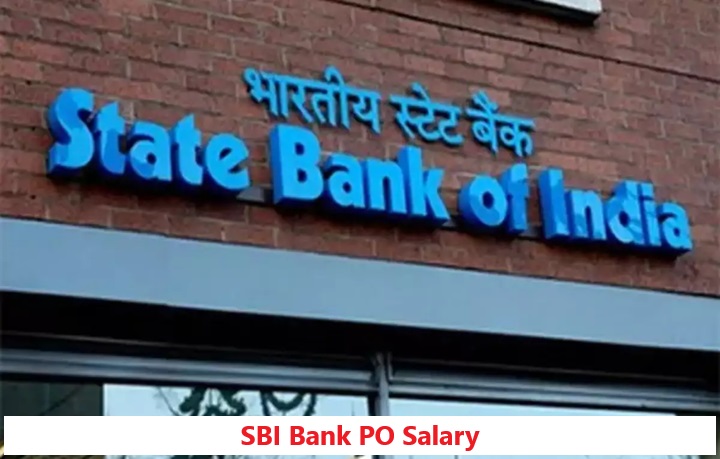



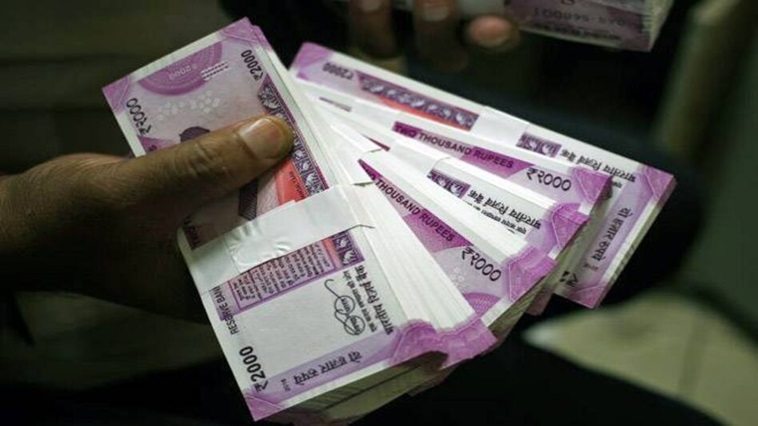
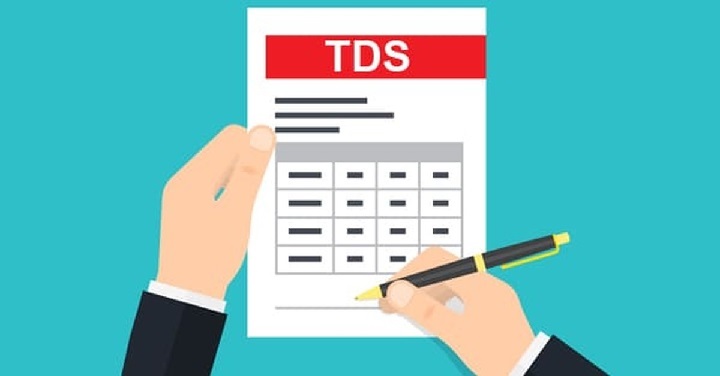
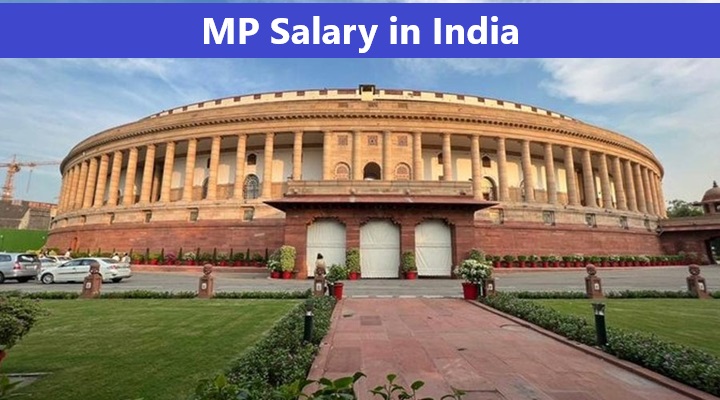



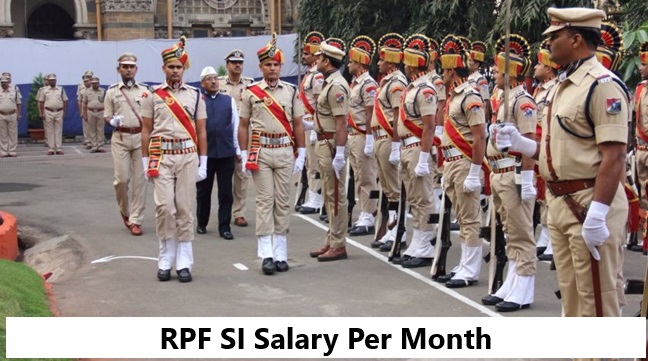
Leave a Reply